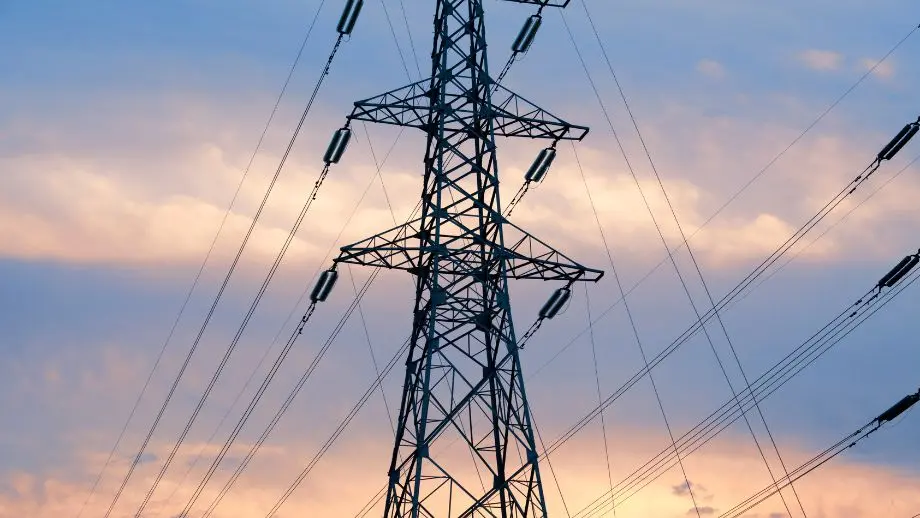Fortnightly Bulletin – 20th November 2023
23 November 2023

Legalisation
Energy Act 2023
The Energy Act 2023 includes a range of policies on the regulation and security of the energy market. Parts of the Act are relevant to the environment and are listed below.
The Act was initially introduced as the ‘Energy Security Bill’ in 2022 but was amended significantly in its passage to becoming an Act. Most of the Act applies across the UK and much of the Act will be brought into force by forthcoming legislation.
Source: Greenspace
For further information, click here
Persistent Organic Pollutants (Amendment) (No. 2) Regulations 2023
The Persistent Organic Pollutants (Amendment) (No. 2) Regulations 2023 will amend the Persistent Organic Pollutants (POPs) Regulation (EU) 2019/1021 on a future date, which has yet to be confirmed.
“Perfluorohexane sulfonic acid (PFHxS), its salts and PFHxS-related compounds” will be added to Annex I, which lists POPs that may not be manufactured, placed on the market or used.
Source: Greenspace
To read the update in full, click here
Carrier, broker and dealer licensing reform
Following a consultation in early 2022, Defra has confirmed that planned reforms to the waste carrier, broker and dealer registration system in England will go ahead.
The new system will replace the existing carrier, broker and dealer terms with a ‘waste controller’ and ‘waste transporter’ role:
- Waste controllers: parties organising waste collection, classification, transport, end destinations, those who arrange recovery or disposal of waste or those buying or selling waste.
- Waste transporters: parties instructed by waste controllers to move waste between locations without input on the end destination and classification.
- Parties will be able to assume both the waste controller and waste transporter role (controller-transporters).
Source: Greenspace
For more information, click here
Guidance
Storing and depressurising nominally empty nitrous oxide canisters: RPS 289
The RPS applies to the storage of discarded nitrous oxide canisters coded as ‘16 05 04* gases in pressure containers (including halons) containing hazardous substances’.
This applies to collection sites operated by a waste collection authority, waste disposal authority, contractor working on behalf of either or both of these waste authorities and a site controlled by the producer of the waste.
It also applies to the controlled depressurising of nominally empty nitrous oxide canisters and the removal of the valve to render the canister permanently depressurized, before they are sent for metal recovery.
Source: Gov.UK
To read the RPS in full, click here
Articles of Interest
2023 Earthshot prize winners announced
The Prince of Wales has revealed the 2023 Earthshot Prize winners who will each receive a £1 million prize to develop their innovations.
During the ceremony at the Mediacorp Theatre in Singapore, the five winners were announced from the 15 Earthshot Prize Finalists. Acción Andina, GRST, WildAid Marine Program, S4S Technologies, and Boomitra will each receive a £1 million prize to support efforts to scale their climate and environmental solutions.
The prize is based on “Earthshots”, which are goals for 2030 that the Prize says if achieved, will repair the planet before “irreversible damage” occurs. The goals are to protect and restore nature, clean our air, revive our oceans, build a waste-free world, and fix our climate.
Source: Circular online magazine
For the full article, click here
Fashion brands continuing to rely on unsustainable materials
According to a new report from Textile Exchange, supported by Boston Consulting Group and Quantis, fashion brands are failing to scale up secure supply chains for more sustainable fabrics, meaning that, by 2030, just 19% of the materials sold by the industry are likely to be from preferred sources.
The report notes that fashion firms are increasingly taking note of the carbon footprint of their materials as the uptake of science-based targets becomes more common. Around 400 fashion brands have either had such targets verified or are aiming to do so in the next two years. Brands are also setting more detailed visions in terms of land impacts, water stewardship, animal welfare and worker wellbeing – whether voluntarily or because they are compelled by legislation and regulation.
All of these trends, compounded by consumer demand, are prompting a heightened drive for more sustainable materials.
Materials such as organic cotton and recycled textiles are called ‘preferred materials’ in the report and these materials accounted for around 19% of global fashion production in 2021, or 23 million tonnes.
By 2030, the demand for these materials is set to swell to 163 million tonnes, the report concludes. But it forecasts that only 30 million tonnes will be available on the market at this point. As such, the materials are likely to continue accounting for just 19% of global fashion production, which is set to increase in tonnage terms. The report attributes the impending supply and demand gap partly to “the lack of a united front within the industry to achieve scaled financial investment and clear demand”. [HR4] Also noted is the fact that climate change impacts are already hitting major fashion production hubs like India and Pakistan, hindering the availability of materials production – whether ‘preferred’ or less sustainable.
Source: edie
For the full article, click here
AI-assisted recycling centre to launch in Coventry
Sherbourne Recycling, based at Whitley Depot is launching a new multimillion-pound recycling facility in Coventry, using robots and AI technology to sort recycling. This facility is thought to be the first of its kind in the UK.
Sherbourne Recyling was founded by eight West Midlands councils and will process the rubbish of 1.5m people across the region.
The robotic units use high suction to target the material during the quality control process, with the robots’ arms able to perform “70 picks a minute,” the site’s business manager Layla Shannon said.
She added “They’re talking back to the optics that are working a stage before them, they know what they’re looking for, the AI is bringing the whole system together and they’re targeting those key items for us that we don’t want there – last little bits of film or tissues… we pull them off and then we’ve got exactly what we’re looking for at the end.”
Waste that cannot be recycled will go into other bins, but the new technology means the range of what is suitable is wider.
Source: BBC News, West Midlands
For the full article, click here
UK Government to keep homes warm using waste heat from data centres
The Government has selected five new projects that will receive a share of £65m to keep nearby homes warm using waste heat from local data centres. The projects are located in London, Watford, Suffolk and Lancaster, all of which will receive grants from the Green Heat Network Fund.
Source: edie
For the full article, click here
Prosecutions and Fines
Ceredigion man prosecuted after over 3,000 tonnes of waste illegally dumped on his land
A Ceredigion man has been prosecuted by Natural Resources Wales (NRW) for allowing 3,122 tonnes of waste to be dumped on his land without an environmental permit.
NRW first visited the man’s property in August 2021 after receiving reports of illegal activity at the site. NRW officers wrote to the man after the visit informing him that officers had identified the unauthorised deposit of waste. He was informed that the deposit of waste on land without an environmental permit was an offence and that NRW would be conducting a full investigation. He was also told that no further waste was to be deposited or burnt at the location.
Despite this, a further visit in November 2021 found that more waste had been left on the site.
While the man did have a registered waste exemption which allowed him to deposit suitable waste to be used in a construction activity, no construction was taking place.
The man was ordered to pay £8,700 (a fine of £7,000, a victim surcharge of £700 and to pay £1,000 towards NRW’s costs) after pleading guilty to allowing construction and demolition waste, amongst other types of environmentally sensitive waste to be dumped on his land at Wemyss Mine near Trisant.
placeSource: Natural Resources Wales
For the full article, click here
Online Learning and Events
Sustainability Uncovered – the edie podcast
Jaguar Land Rover’s (JLR) François Dossa on collaboration for the EV revolution
As part of edie’s Net-Zero November editorial campaign, JLR’s executive director of strategy and sustainability François Dossa explores how the biggest challenges to the Electric Vehicle (EV) revolution can be turned into opportunities.








